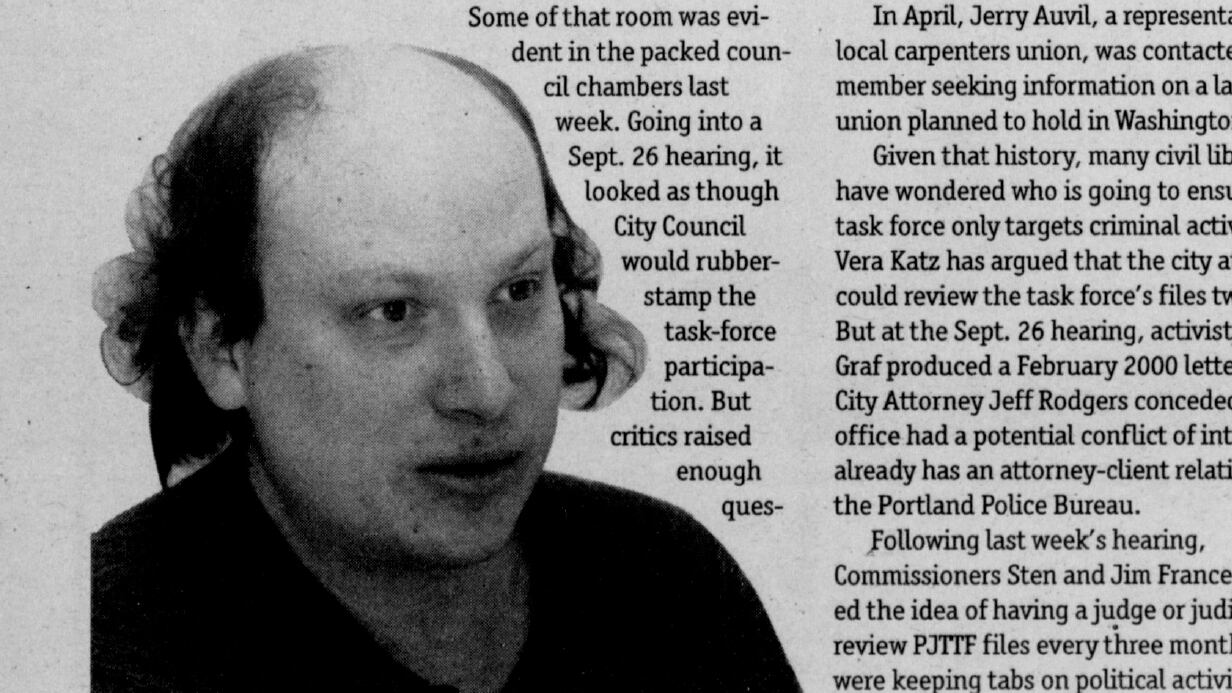Dan Handelman, a police accountability advocate whose meticulous documentation and public testimony shaped Portland’s approach to public safety reform for over three decades, died Wednesday after suffering a stroke. He was 60.
“It’s such a huge loss to Portland and the justice community to lose Dan,” said Sandy Chung, executive director of ACLU of Oregon.
Handelman’s death was first reported Wednesday by The Oregonian.
As the co-founder of Peace and Justice Works and the driving force behind the advocacy group Portland Copwatch, which he founded in 1992, Handelman dedicated his life to monitoring police behavior and amplifying community concerns about how officers treated citizens. He attended nearly every public meeting concerning the Portland Police Bureau, offering pointed testimony before city leaders and publishing The People’s Police Report, a triannual newsletter tracking patterns in police conduct.
Despite his private nature, Handelman’s public presence was inescapable. His encyclopedic knowledge of city policy and unyielding commitment to justice earned him the respect of officials and the admiration of fellow advocates—and even the grudging respect of police brass. Portland Police Chief Bob Day described him as a “tireless advocate” to The Oregonian and acknowledged his deep knowledge of the bureau.
Typical of his knowledge and his moral framework was his response to a 2021 lawsuit in which City Commissioner Jo Ann Hardesty accused the police union’s resign president, Officer Brian Hunzeker, of leaking information that mistakenly identified Hardesty as the suspect in a hit-and-run crash. Handelman linked the incident to a false arrest in West Linn four years prior, in which offers fabricated a case against Black Portlander Michael Fesser.
“That should be chilling to everybody that the police are doing things like this and then kind of just shrugging it off as a onetime mistake,” Handelman said then. “Even people who aren’t public officials could be alarmed by this because it means that anybody that the police don’t like could be subject to the same kind of smear.”
(He knew of what he spoke: In 1999, a lawsuit revealed that a police informant had filed a “criminal incident” report of Handelman’s anti-war protest activities, describing him as a “noncriminal” activist.)
Handelman’s impact extended beyond public testimony and press commentary. He helped design multiple iterations of Portland’s police oversight systems, most recently playing a key role in shaping a new community oversight board approved by voters. Over the years, he served on the Police Internal Investigations Auditing Committee, the Independent Police Review advisory boards and the Police Accountability Commission.
Debbie Aiona of the League of Women Voters called him an incredible resource for the community and told The Oregonian that his contributions “transformational.”
